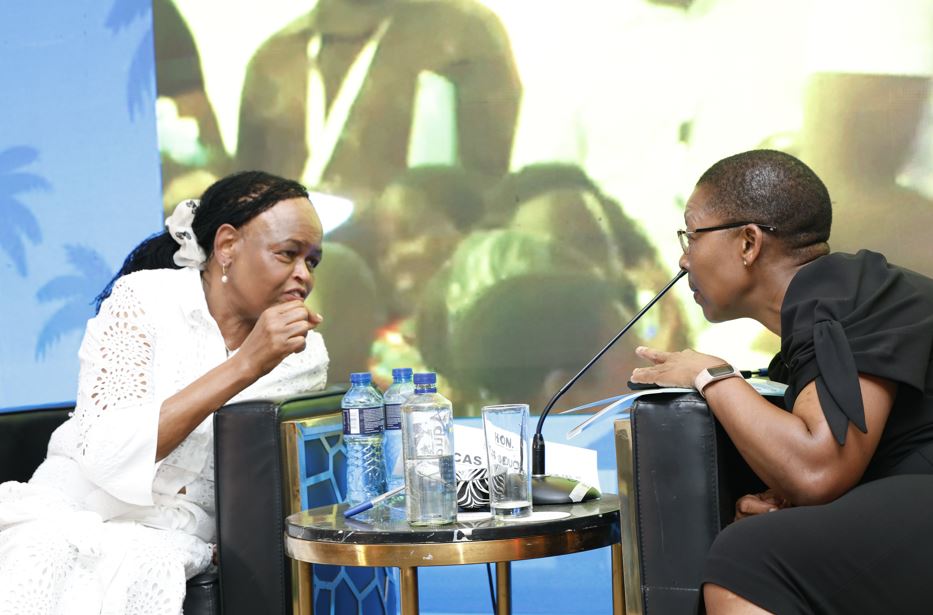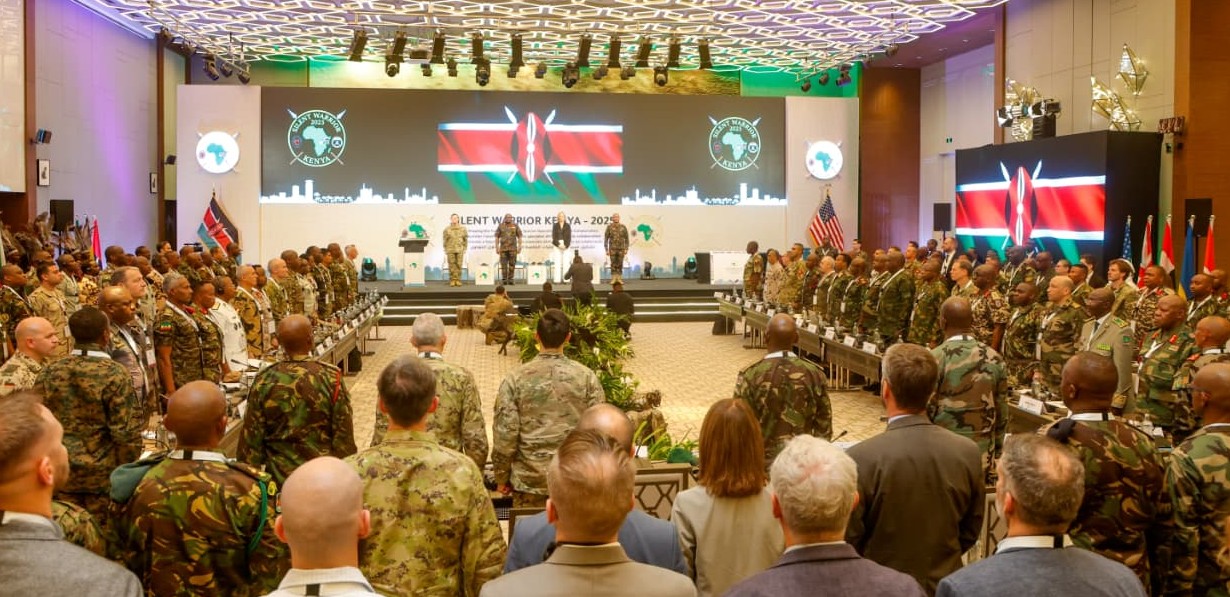CJ Koome, AG Oduor take opposing views on anticipatory bail amid Ruto criticism

CJ Koome defended the Judiciary’s role, saying anticipatory bail is meant to protect individuals from unlawful arrest or detention before charges are filed.
Chief Justice Martha Koome and Attorney General Dorcas Oduor publicly differed over the granting of anticipatory bail to suspects, reigniting debate on a legal provision that has drawn fire from President William Ruto.
Speaking during the Law Society of Kenya (LSK) annual conference in Diani, Kwale County, the two argued that the measure serves as a safeguard against unlawful arrest, but its misuse could undermine the administration of justice.
More To Read
- LSK condemns violence in by-elections, warns of gaps ahead of 2027 polls
- CJ Koome urges contextual enforcement of Marriage Act, stronger family justice system
- How circuit, mobile courts expanded justice to underserved communities - report
- CJ Koome affirms Judiciary’s commitment to transparency, says trust central to transformation
- Supreme Court to receive title deed by December 25, says DP Kithure Kindiki
- Koome reports historic 104 per cent case clearance rate, hails milestone for justice access
The discussion was sparked by LSK President Faith Odhiambo’s challenge to President Ruto’s recent criticism of anticipatory bail for corruption suspects. On Wednesday, during the Devolution Conference in Homa Bay County, the President accused the Judiciary of abetting graft by granting such bail, claiming suspects use it to shield themselves from arrest and prosecution.
Attorney General Oduor said that while anticipatory bail is a constitutional right, its application is sometimes problematic because some recipients wrongly believe it offers immunity from prosecution.
“We have people who have been charged with offences which ought not to be bailable… I am not saying the President is right,” she said, drawing protests from some lawyers in attendance.
Oduor stressed that anticipatory bail remains a right that lawyers are entitled to seek for their clients through the courts.
CJ Koome, however, defended the Judiciary’s role, saying anticipatory bail is meant to protect individuals from unlawful arrest or detention before charges are filed. She said such constitutional provisions were deliberate outcomes of national consensus and must be safeguarded.
“The danger today is the withdrawal of many corruption cases. I have called for data on how many anticipatory bail cases we have,” she noted.
Koome clarified that interim anticipatory bail orders are typically granted for a maximum of 14 days and do not hinder the administration of justice.
“The real danger to the administration of justice is the failure to prosecute corruption cases,” she said to applause from the lawyers, adding that due process must follow once a suspect is charged.
LSK President Odhiambo rejected the President’s blanket disapproval of anticipatory bail, saying judicial independence is vital to the rule of law.
“The standard requirements for granting anticipatory bail are well documented and provide safeguards against abuse of discretion. It is neither a Kenyan innovation granted on whims nor does it amount to endorsing crime,” she said.
The week-long LSK conference, themed “Protecting Constitutionalism and the Rule of Law – Ensuring Accountability,” has attracted more than 1,500 lawyers.
During the Conference, Koome also assured the public that the Judiciary is prioritising the swift release of children arrested during demonstrations.
“We have also prioritised the prompt release of children arrested during demonstrations, with judicial officers sometimes sitting late into the night or over weekends to secure their liberty,” she said.
She added that courts have been proactive in ensuring that actions by public and private actors strictly comply with the law.
“Indeed, probably at no time in the history of our nation have the courts granted as many orders of habeas corpus as have been granted by the High Court in the last year,” she said, noting that urgent applications have led to orders for the production of persons allegedly abducted or disappeared.
Her remarks came amid ongoing concerns over abductions. Earlier this year, the Kenya Human Rights Commission (KHRC) called for the resignation of seven senior state officers over comments made about enforced disappearances.
In a January 7 statement, KHRC named Deputy President Kithure Kindiki, Interior Cabinet Secretary Kipchumba Murkomen, National Assembly Majority Leader Kimani Ichung’wah, Senate Speaker Amason Kingi, Kapseret MP Oscar Sudi, Sirisia MP John Waluke, and Tiaty MP William Kamket.
The commission also urged Inspector General of Police Douglas Kanja to step down, accusing him of allowing the abductions to take place under his watch.
“The KHRC calls for an impartial and thorough investigation into their statements and potential involvement in the abductions and extrajudicial killings of state critics. Those found culpable must face prosecution and be permanently barred from holding state or public office,” the statement read in part.
According to KHRC, the leaders’ comments violated the rule of law and the responsibilities of their offices. It cited Kindiki’s past justification, while serving as Interior CS, of excessive police force against unarmed protestors as a dangerous precedent.
The commission also faulted Ichung’wah for accusing Trans Nzoia Governor George Natembeya of orchestrating abductions during former President Uhuru Kenyatta’s administration.
Top Stories Today












































